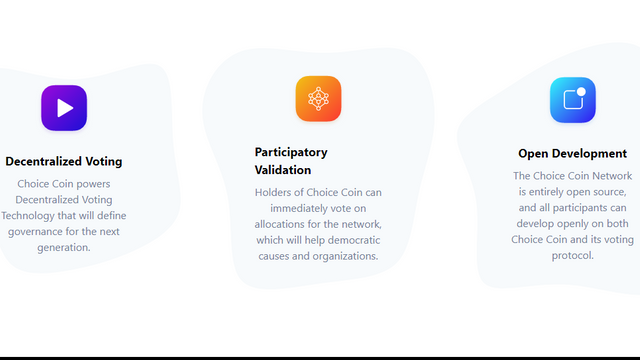The blockchain as a transparent ballot box.
The majority of the world's member countries are a democratic societies with a few exceptions to nations that practice other forms of government. Modern societies are built on democracy. This system of government is not new, it dates as far back as 508 B.C in ancient Greece Athens. Democracy as a system of government is a medium of equal representation. It is a form of government in which the people have the authority to deliberate and decide legislation ("direct democracy"), or to choose governing officials to do so ("representative democracy"). Who is considered part of "the people" and how authority is shared among or delegated by the people has changed over time and at different rates in different countries, but over time more and more of a democratic country's inhabitants have generally been included.
However, there is still a large percentage of underrepresented citizens whose voices are not heard in government due to several factors ranging from but not limited to political apathy, corruption in the voting process, and insecurity. In many parts of Africa for example, a lot of her citizens do not vote in national elections because of insecurity on election day, gross election malpractice, and corruption. This has led to incompetent representatives leading the affairs of the nation and thus poor decisions that do not represent the interests of the entire country are made and this leads to bad policies and laws that stagnant economies and reduce the standard of living.
Technologies are in place nowadays to solve this problem endangering the very essence of democracy which is giving everyone a voice. Voting, whether traditional ballet-based or electronic voting (e-voting), is what modern democracies are built upon. In recent years voter apathy has been increasing, especially among the younger computer/tech-savvy generation. E-voting is pushed as a potential solution to attract young voters. For a robust e-voting scheme, a number of functional and security requirements are specified including transparency, accuracy, auditability, system and data integrity, secrecy/privacy, availability, and distribution of authority.
The blockchain solution.
Blockchain technology is supported by a distributed network consisting of a large number of interconnected nodes. Each of these nodes has its own copy of the distributed ledger that contains the full history of all transactions the network has processed. There is no single authority that controls the network. If the majority of the nodes agree, they accept a transaction. This network allows users to remain anonymous. A basic analysis of blockchain technology (including smart contracts) suggests that it is a suitable basis for e-voting and, moreover, it could have the potential to make e-voting more acceptable and reliable.
The obvious advantages of e-voting using blockchains include:
i) greater transparency due to open and distributed ledgers,
ii) inherent anonymity,
iii) security and reliability (especially against Denial of Service Attacks) and
iv) immutability (strong integrity for the voting scheme and individual votes). Election results can’t be manipulated. Once recorded on the blockchain, it remains there forever thus boosting the integrity of the entire vote process.
v) Decentralized voting- voters can vote at their own convenience without having to queue up at any central balloting station.
In recent times, there have been proposed forms of e-voting via the blockchain. This is usually done via voting protocols. Eligible voters cast their votes by interacting with the voting platforms through governance tokens which are a specific type of cryptocurrency that power these voting protocols. Recent amongst these voting protocols is Frontior Voting protocol which leverages the Algorand blockchain and quantum computing to create a system. The frontior voting protocol is powered by CHOICE-COIN which prides itself as a democratic token for the new e-voting age as powered by blockchain.
Some of the advantages choice-coin will offer the new system of e-voting via blockchain are the image below
More information about choice-coin can be found on their website and on Frontior blockchain's website

.png)